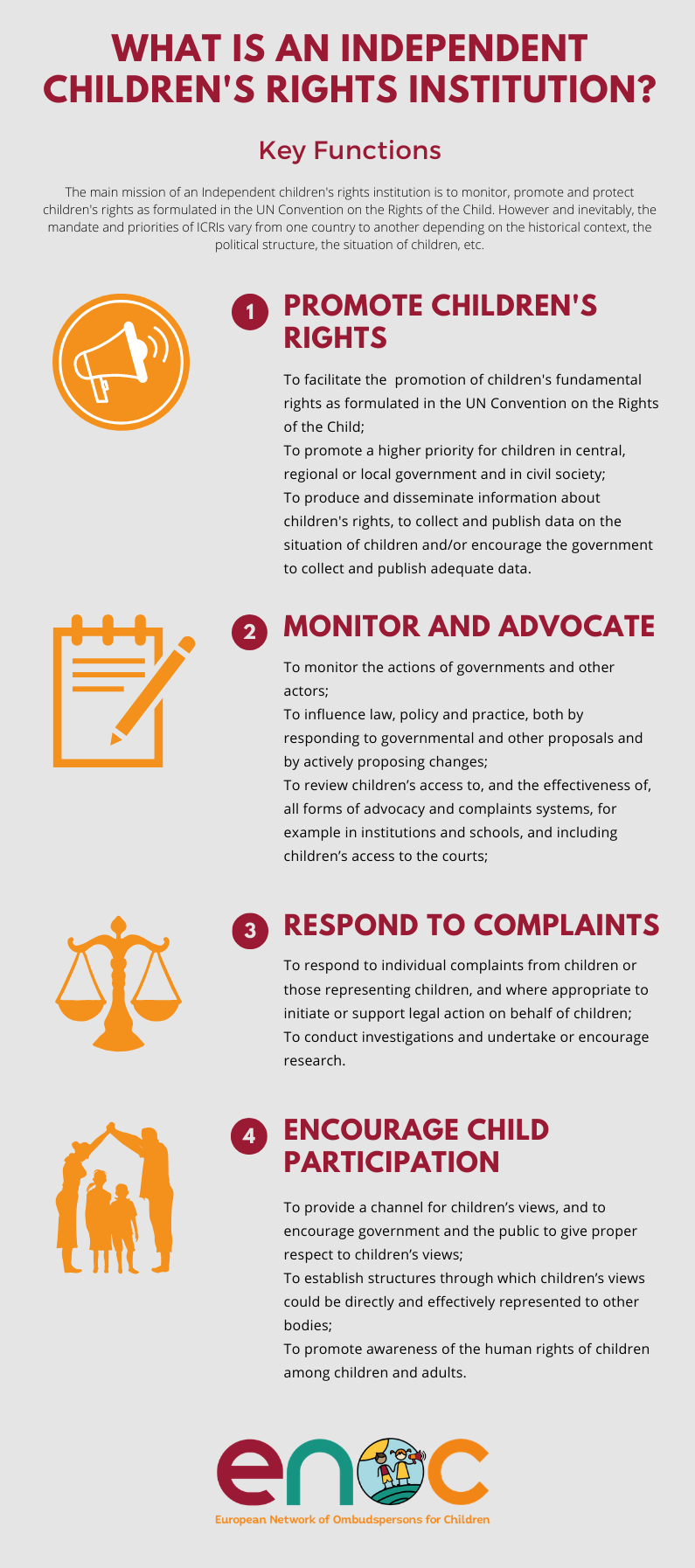Independent Children’s Rights Institutions
The European Network of Ombudspersons for Children (ENOC) links independent offices which have been established in European countries to promote children's fundamental rights.

Inevitably and correctly, the aims and priorities of independent institutions for children will vary from state to state. They will vary according to differences in the situation of children and according to the variety of governmental and non-governmental institutions and structures affecting children and promoting human rights within states.
The following is a summary of aims of existing independent institutions; not all offices pursue all these aims (in particular, offices vary according to whether or not they deal with individual cases and complaints from children):
- to promote full implementation of the Convention on the Rights of the Child;
- to promote a higher priority for children, in central, regional or local government and in civil society, and to improve public attitudes to children;
- to influence law, policy and practice, both by responding to governmental and other proposals and by actively proposing changes;
- to promote effective co-ordination of government for children at all levels;
- to promote effective use of resources for children;
- to provide a channel for children’s views, and to encourage government and the public to give proper respect to children’s views;
- to collect and publish data on the situation of children and/or encourage the government to collect and publish adequate data;
- to promote awareness of the human rights of children among children and adults;
- to conduct investigations and undertake or encourage research;
- to review children’s access to, and the effectiveness of, all forms of advocacy and complaints systems, for example in institutions and schools, and including children’s access to the courts;
- to respond to individual complaints from children or those representing children, and where appropriate to initiate or support legal action on behalf of children.
